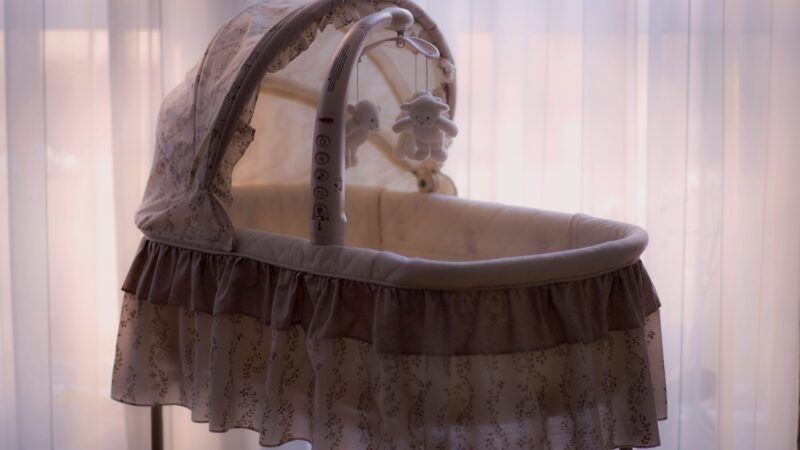Woman Will Be Tried Again for Shaken Baby Case From 1984
But shaken baby syndrome has become a doubtful diagnosis in the ensuing years.

A woman who plead guilty to shaking a baby 35 years ago has been charged with his murder upon his recent death at age 37.
Terry McKirchy, now 59 and living in Texas, was babysitting five-month-old Benjamin Dowling in 1984, in Florida. The parents came home to find the baby turning blue. At the hospital, he was diagnosed with shaken baby syndrome. McKirchy was charged with first degree attempted murder and aggravated battery.
She was six months pregnant at the time and accepted a plea deal whereby she would only have to go to jail on weekends until she gave birth, reported The New York Daily News. Benjamin was severely handicapped the rest of his life. His death triggered the new charges against McKirchy. She now faces a possible life sentence.
There's just one problem.
In the intervening decades, shaken baby syndrome has come under increasing scrutiny as an illegitimate diagnosis.
One recent meta-study, for instance, was titled "Insufficient evidence for 'shaken baby syndrome'—a systematic review." This study of studies found that the once-indisputable proof that a baby was shaken—the trifecta of brain bleeding, swelling, and bleeding behind the eye—could in fact be caused by many other issues.
Deborah Tuerkeimer, a professor of law at Northwestern University, has written extensively on the subject, and noted in a New York Times op-ed all the way back in 2010 that "bleeding in the brain can have many causes, including a fall, an infection, an illness like sickle-cell anemia or birth trauma."
She added:
The new understanding of this diagnosis has only just begun to penetrate the legal realm. In 2008, a Wisconsin appeals court recognized that "a shift in mainstream medical opinion" had eroded the medical basis of shaken baby syndrome. The court granted a new trial to Audrey Edmunds, herself a mother of three, who had spent a decade in prison for murdering an infant in her care. Prosecutors later dismissed all charges.
McKirchy, the former Florida babysitter, did in fact plead guilty to shaking the baby. At the time she told the Miami Herald: "I know I didn't do it. My conscience is clear. But I can't deal with it anymore." She would have faced 12-17 years in prison if found guilty. The discrepancy in potential sentences between taking a plea and going to trial is particularly enormous in shaken baby cases, says investigative journalist-turned-filmmaker Susan Goldsmith.
Goldsmith's documentary, The Syndrome, examines the disturbing willingness of courts and the public to believe a previously unheard-of crime—baby shaking—was suddenly pervasive. She likens it to the panic over Satanism. In fact, her film traces how some of the very same experts who had promoted the idea that day care centers were filled with child-raping Satanists went on to promote the idea that homes were filled with baby-shaking parents.
The result, Goldsmith says, is hundreds of parents and caregivers behind bars for the crime of shaken baby syndrome (or, as it has been rebranded, "abusive head trauma"). The exact number is impossible to determine, as the charges fall under so many different names: manslaughter, homicide, child abuse. Tuerkheimer has suggested the wrongful convictions are so numerous, each state should create an innocence commission to review all shaken baby cases.
But as it stands, says Goldsmith, "Anyone who brings a toddler or infant into an emergency room with some kind of neurological issue going on that they cannot explain—there's a good chance they'll leave the hospital in handcuffs."


Show Comments (25)